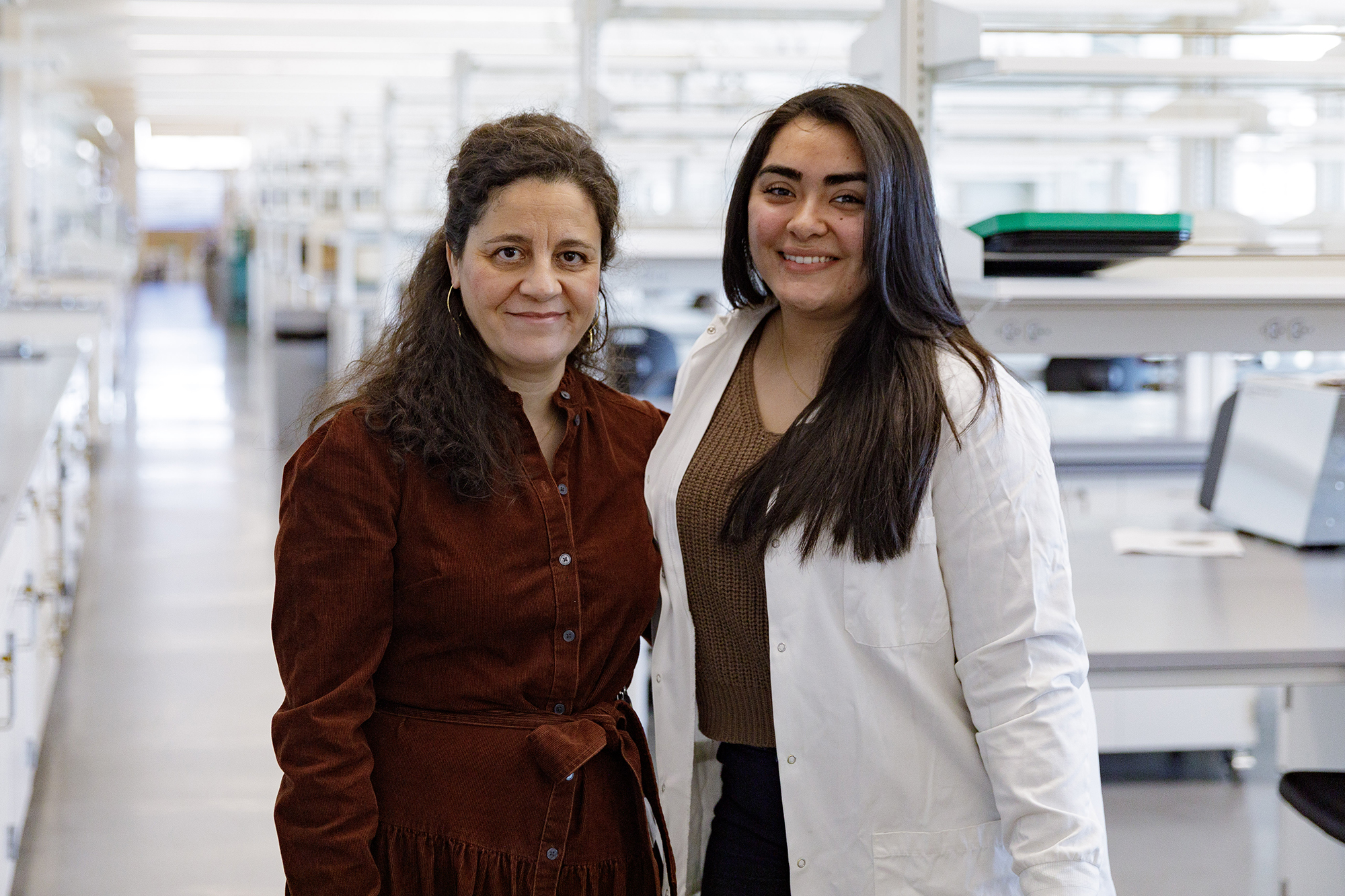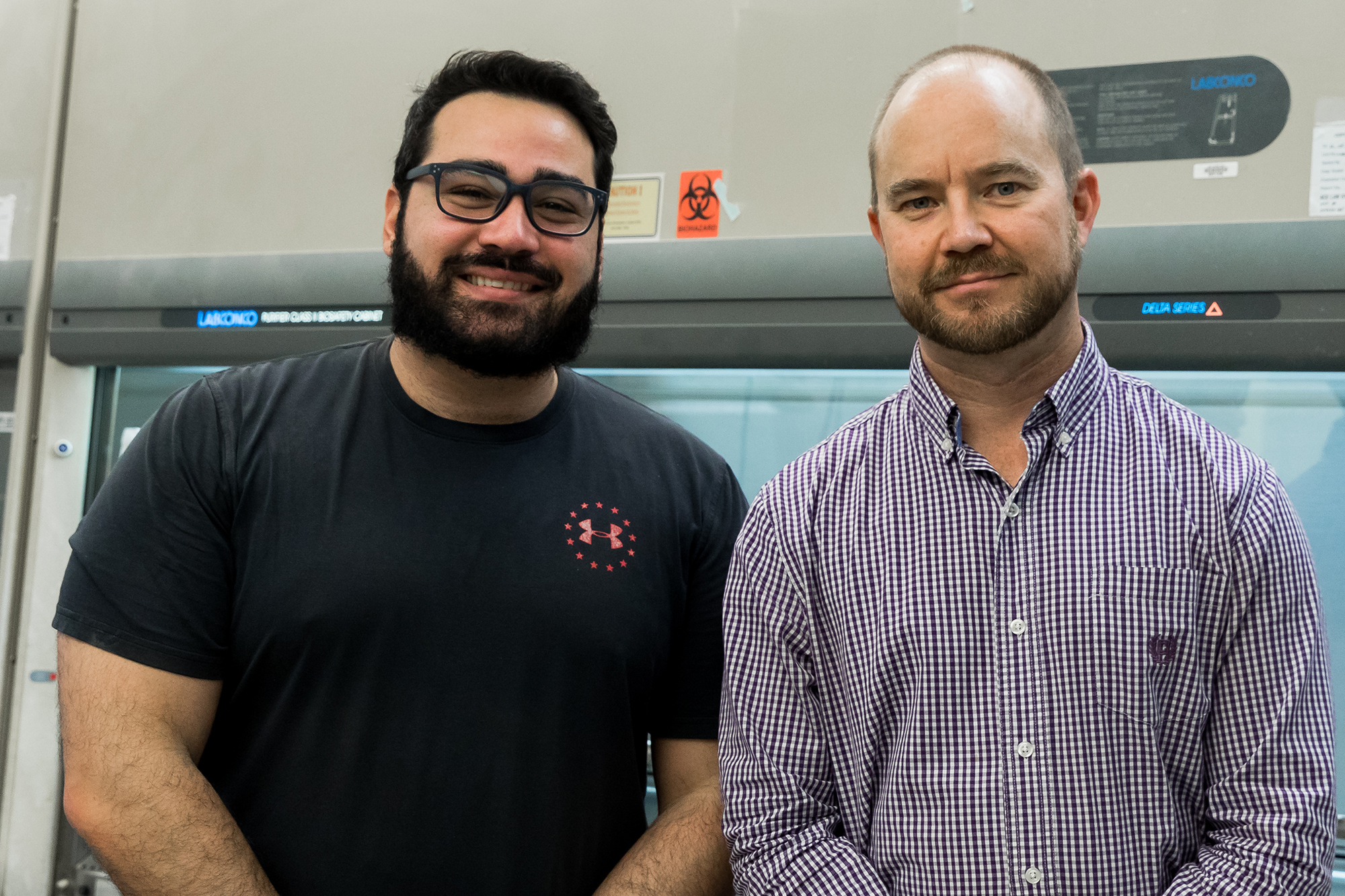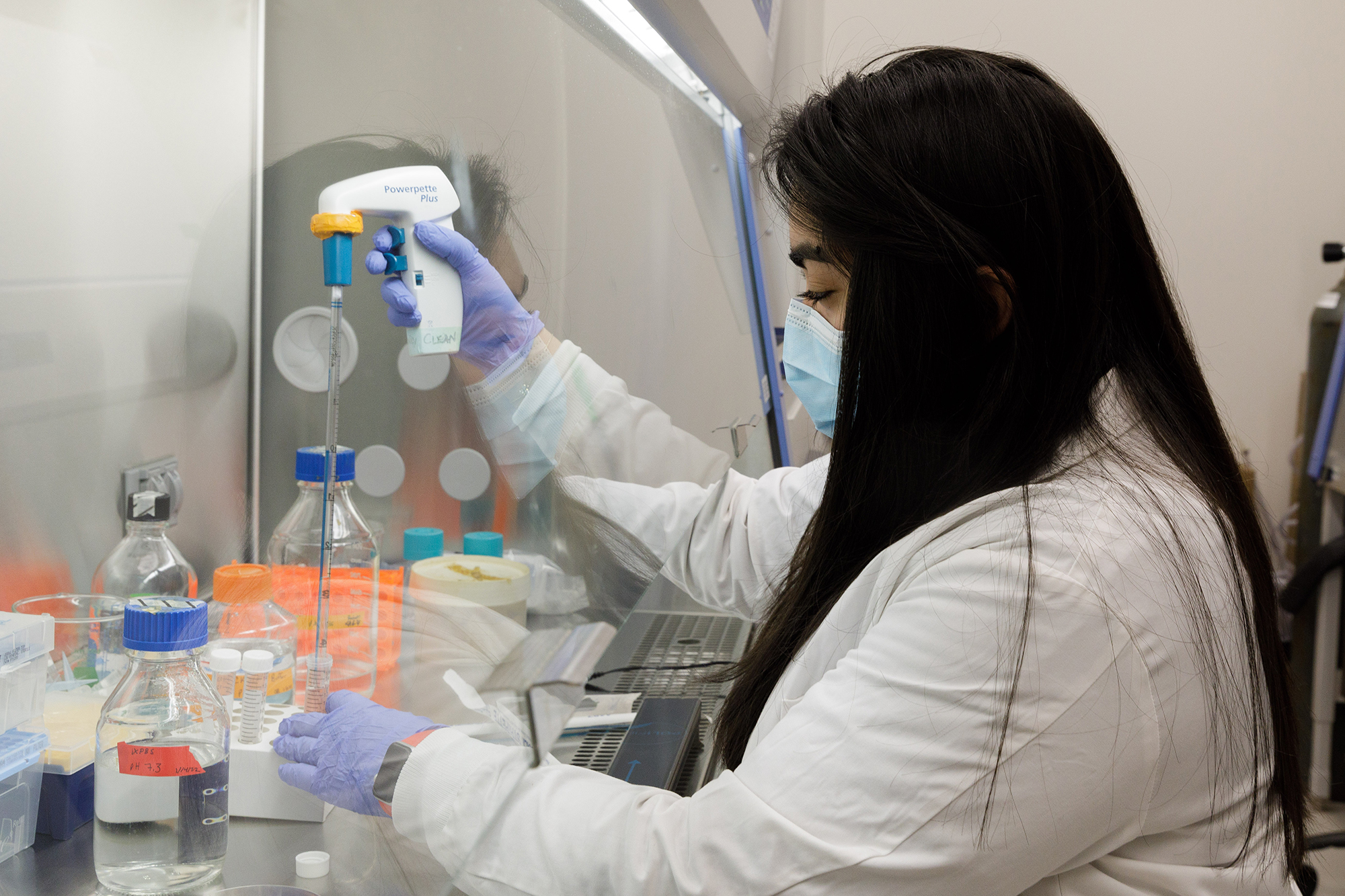
Feb. 15, 2022
Contact: Deidra Ashley, ashleyde@missouri.edu
In 2018, Dezzarae Luera became the first person in her family to graduate from college. Because she loved research so much, the San Antonio native’s mentor suggested Luera look into graduate school and build upon her degree in biology. “I had never heard of graduate school before,” Luera said. “I didn’t understand what it meant.”
After a year of investigation, pep talks from her mentor and many discussions with her parents, Luera applied to graduate school.
She didn’t get in.
Luera’s mentor kept encouraging her, and Luera applied again the following year.
She still didn’t get in.
“I never imagined I could be so upset about something I didn’t even know that I wanted to do,” Luera said. “Something wasn’t working, and I knew I needed help.’”
Finding another route
While researching “how to get into grad school” online, Luera came across the Post-Baccalaureate Research Education Program (PREP). The national program provides underrepresented students individualized professional development and academic training to help them prepare for a PhD program. Students typically complete PREP in one or two years.
“As I researched all of the PREP institutions, Mizzou scared me the most,” Luera said. “I was aware of my downfalls — public speaking and science writing — and I could see that Mizzou was going to push me in those areas.”
Luera faced her fears and applied. Due to the coronavirus pandemic, her interview process would take place via Zoom, as opposed to typical in-person visits.
“At that time, I had never been north of Amarillo, Texas,” Luera said. “But throughout the interview process, I felt seen. The faculty and students I spoke to genuinely wanted to help me and see me succeed. I didn’t expect that from such a big university.”
A few weeks later, Luera got the call that she was accepted at Mizzou. “I knew it was the right place for me,” she said. She came to MU — sight unseen.
Becoming comrades
In 2017, Reinier Suarez was seeking graduate school opportunities. “I came out of undergrad with zero laboratory experience, and I was having a hard time finding a graduate program that takes students without it,” Suarez said. A researcher from Colorado State University introduced Suarez to PREP, and he was accepted into Mizzou’s program in 2019.
“My parents are from Cuba, and I grew up in Miami,” he said. “Coming to Columbia was the first time I was ever really in a small town — and I had zero expectations. I was surprised by the environment and camaraderie on campus.”
Suarez said one of the appeals of Mizzou’s PREP is the small cohort. Each year, fewer than 10 students are accepted into the program. “It helps create a strong sense of community,” he said. “Although we’re all different people — from different walks of life — it feels like we’ve known each other forever.”

The power of a mentor
In the academic setting, PREP scholars focus on training in a highly mentored environment. They rotate through labs before choosing an independent research project, complete coursework tailored to their individual needs and work on professional development.
“Everyone wanted me to thrive — not only in my academic endeavors but also on a personal level,” Luera said. “PREP gave me access to resources and support that I never could have imagined.”
During his PREP, Suarez landed in Marc Johnson’s lab studying the prevalence of COVID-19 in wastewater.
“Students like Reinier are the backbone of my lab,” Johnson said. “PREP was able to help fill a gap in his resume and Reinier’s dedication and determination helped him become a better researcher.”
Suarez said the mentorship is one of the main reasons he chose to stay at Mizzou for his doctorate degree. “Early on, Marc told me that he was going to do whatever it takes to make a scientist out of me,” Suarez said. “He challenged me and created a lot of opportunities. And he came through on his promise.”
Luera also grew close to her mentor, Emma Teixeiro-Pernas, through PREP. In Teixeiro-Pernas’ lab, Luera studies T cells and how the immune system provides protection against infection and diseases. The work is part of the NextGen Precision Health initiative — aimed at creating precision health solutions for society’s toughest diseases. “Emma and I got to know each other really well,” Luera said. “I originally had my mind set to come to Mizzou for a year and leave. But working with Emma changed my perspective.”

Once a Tiger, always a Tiger
At the end of PREP, Luera said she was ready to once again apply to graduate school. “I felt more prepared this time,” she said. “In the short time that I was in PREP, and working with my mentor, I grew so much. PREP challenged me, but I never felt alone — there was always someone there to guide me if I needed it.”
Luera and Suarez were both accepted to Mizzou’s graduate program, and they decided to stay.
Now first-year doctoral students, Luera and Suarez said they’re grateful for PREP leading them to the research projects they’re working on today.
“When you’re in the nitty-gritty, you’re not always thinking about the big picture,” Suarez said. “But when I take a step back and see how the work I’m doing at Mizzou impacts our country and the world, it’s humbling. As a kid, I never could have imagined being where I am today.”
Luera said she’s particularly excited for the opportunity to continue her research under the NextGen umbrella. “It’s much harder to give up on something when I know there’s someone at the hospital next door who will benefit from what we’re doing,” she said. “The resources we have at Mizzou — and through NextGen — make the goal of improving lives attainable. I wouldn’t be doing this work without PREP.”
PREP is housed within the Division of Biological Sciences and is led by John David and Michael Garcia.



